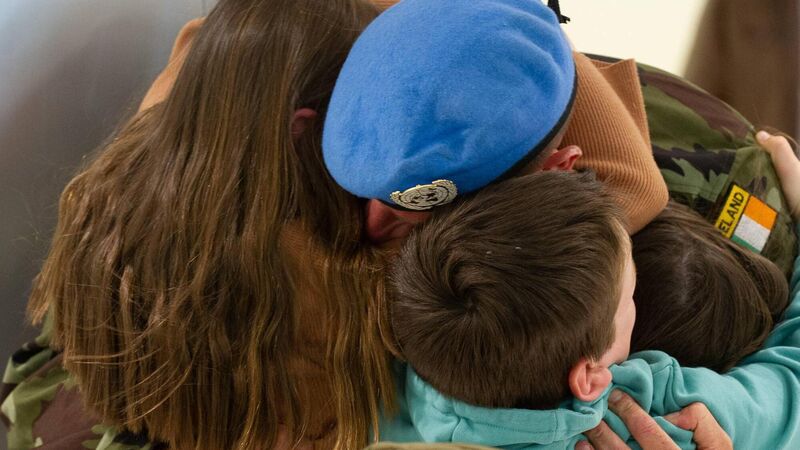Sean O’Riordan: When warning shots on the crisis in our military go unheeded

Members have said that the long time spent away from their families is not reflected in their remuneration.
Try from €1.50 / week
SUBSCRIBE
Members have said that the long time spent away from their families is not reflected in their remuneration.
It seems a bit like groundhog day. For over a decade, warning shots have been repeatedly fired across the bows of successive governments by the two Defence Forces representative associations forecasting that the country’s military was heading for a personnel meltdown, of which it is now very firmly in the grip.
A new survey of nearly 100 officers, the vast majority of whom have quit the military well before mandatory retirement age, lays bare yet again the reasons personnel are leaving in their droves and it makes quite stark reading.
Already a subscriber? Sign in
You have reached your article limit.
Annual €130 €80
Best value
Monthly €12€6 / month
Introductory offers for new customers. Annual billed once for first year. Renews at €130. Monthly initial discount (first 3 months) billed monthly, then €12 a month. Ts&Cs apply.
CONNECT WITH US TODAY
Be the first to know the latest news and updates
Newsletter
Sign up to the best reads of the week from irishexaminer.com selected just for you.
Newsletter
Keep up with stories of the day with our lunchtime news wrap and important breaking news alerts.
Newsletter
Sign up to the best reads of the week from irishexaminer.com selected just for you.
Saturday, February 7, 2026 - 9:00 PM
Saturday, February 7, 2026 - 11:00 PM
Saturday, February 7, 2026 - 9:00 PM
© Examiner Echo Group Limited